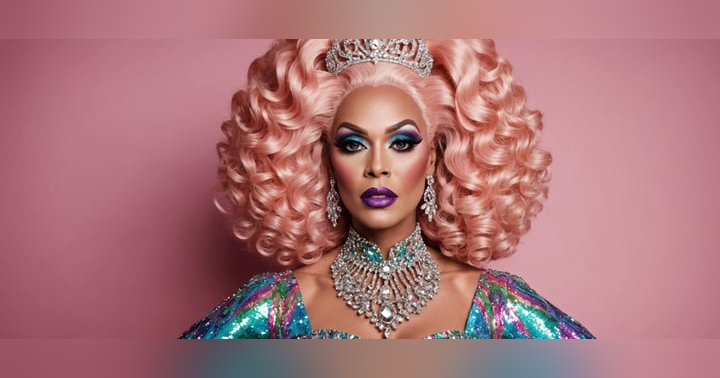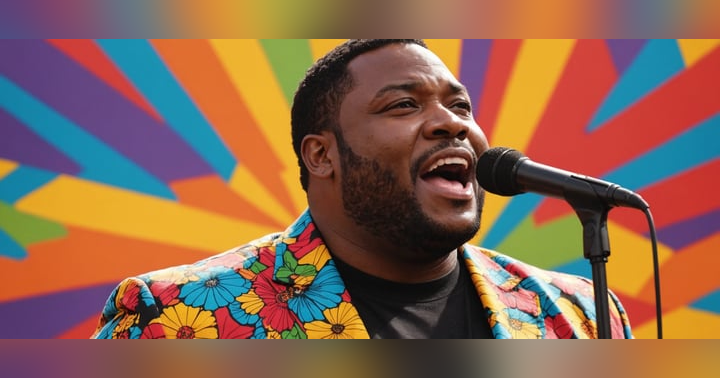Surviving Narcissistic Abuse in LGBTQ+ Relationships: Recognize the Signs, Reclaim Your Power, and Heal

There’s a Difference Between Saying and Doing the Right Thing
At the beginning, it often feels like a dream. The attention is constant, the gestures are grand, and the emotional intimacy feels unlike anything before. For many queer individuals navigating love in a world that has long invalidated their identities, this kind of affection can feel like a lifeline. But what seems like a deep emotional connection may, in fact, be the first step into a narcissistic relationship.
Narcissistic abuse is not about vanity or arrogance—it’s a sustained pattern of emotional manipulation and control. And for LGBTQ+ individuals, the desire for connection and acceptance can make them especially vulnerable to these dynamics.
Mack Ciccone, a gay man who has shared his experience in two powerful Medium essays, offers insight into how such a relationship can unfold. What began with shared vulnerability and emotional intensity soon evolved into trauma bonding, control, and psychological harm. “He was very charming,” Mack recalls. “He would say the right things all the time. He wouldn’t do the right things, but he would say the right things.”
The Trap of Intensity: Love Bombing and Emotional Entrapment
Narcissistic relationships rarely start with malice. Instead, they begin with intensity—what’s known as love bombing. Through excessive affection, attention, and idealization, narcissistic partners quickly foster emotional dependence, creating the illusion of a safe and powerful bond. To those yearning for connection, especially within marginalized queer identities, this attention can feel intoxicating.
Grand gestures and declarations, like “you’re the love of my life,” are used to fast-track intimacy. But what seems like romance is actually strategic, a way to secure power by meeting emotional needs with performance instead of genuine care. Once trust is established, the warmth begins to fade, replaced by volatility, control, and confusion.
As Mack explains, “He would say the right things” to maintain emotional dominance, even as his behavior betrayed those words. The cycle of idealization and devaluation becomes a method of destabilization, with affection used as a reward and withheld as punishment.
This manipulation is especially damaging in queer relationships, where internalized shame or past rejection may already be present. What looks like empathy, such as providing comfort during depressive episodes, can quickly shift into justification for cruelty or be used to assert emotional superiority.
Understanding the mechanics of love bombing is essential to interrupting the cycle and reclaiming autonomy. Real love doesn’t thrive in confusion—it thrives in consistency, care, and mutual respect.
Eroding Boundaries: The Narcissist’s Cycle of Control
Over time, the adoration fades, and a more sinister pattern takes its place. Communication becomes warped, boundaries are violated, and reality is distorted. What once felt like intimacy transforms into a relentless cycle of confusion and control.
Narcissists often frame themselves as the victim, twisting disagreements to cast blame and avoid accountability. As Mack recounts, “Everything became that vicious circle of trying to have a conversation, him getting very defensive, then coming back and apologizing, then, ‘Oh, well, it’s your fault. I did that because you did this.’”
This tactic of shifting blame, rewriting history, and denying a partner’s experience is known as gaslighting. It chips away at a survivor’s confidence until they begin questioning their own reality. In public, the narcissist may remain charming. But behind closed doors, criticism, dismissal, and conditional affection are the norm.
For LGBTQ+ individuals, many of whom may not have grown up with models of healthy queer love, this psychological whiplash can be deeply damaging. Survivors often internalize the dysfunction, believing they’re the problem rather than recognizing the emotional abuse at play.
The critical difference between conflict and narcissistic abuse is intent. While disagreements are normal, narcissistic behavior is about power, not resolution. It’s a system designed to erode boundaries and keep control firmly in the abuser’s hands.
Emotional Fallout: The Psychological Cost of Narcissistic Abuse
The cumulative toll of narcissistic abuse is profound. The cycle of manipulation, blame, and emotional abandonment leaves many survivors feeling disoriented, anxious, and emotionally hollow. Over time, this sustained psychological distress can lead to depression, low self-esteem, and even suicidal ideation.
“I became a shell of who I used to be,” Mack shares. “I felt that I didn’t measure up. I just became a completely different person overall.”
This experience is far from rare. Many survivors find themselves retreating from friendships, second-guessing their decisions, and losing touch with their own identity. When love becomes conditional—when it’s weaponized to control rather than uplift—it causes damage that often outlasts the relationship itself.
Healing begins by naming the abuse and honoring one’s reality. Therapy, community support, and safe spaces are critical tools in the process of rebuilding. Survivors must learn to trust themselves again and to recognize that real love does not require them to abandon who they are.
The Breaking Point: Leaving the Relationship and Reclaiming Power
Exiting a narcissistic relationship rarely comes with closure. More often, it comes after repeated betrayals and the slow erosion of trust. For Mack, the final straw came after discovering explicit photos and videos his partner had sent to another man, despite an agreement to maintain transparency within an open relationship.
When confronted, his partner first lied, claiming the content was for personal use. The truth soon surfaced: the infidelity was ongoing, and the new relationship had already become public. “I cannot be with someone that I don’t trust,” Mack says. “Which, when you are with someone with narcissistic personality disorder, that is one of the worst things that you can do for yourself, because then it plays into their victimhood narrative.”
Even after the relationship ends, manipulation can persist through tactics like hoovering, a term for when a narcissist tries to pull their former partner back in with false promises, emotional appeals, or guilt. These efforts aren’t rooted in love but in a desire to reestablish control and maintain access to what psychologists call “narcissistic supply.”
Ending contact may feel harsh, but for many, it’s the only way to truly start healing. No contact creates space for clarity and for survivors to rebuild without being re-traumatized.
The Path to Healing: Reclaiming Identity and Rebuilding with Intention
Healing after narcissistic abuse is not linear, but it is possible. Rebuilding begins with rediscovering identity, learning to trust your gut, assert boundaries, and define love on your own terms.
Survivors often emerge with sharper instincts, a deeper understanding of their values, and a renewed commitment to emotional safety. Recognizing red flags, once dismissed or rationalized, becomes second nature.
It’s important to understand that narcissists often target empathy. They twist kindness into guilt and weaponize vulnerability to maintain power. That’s why staying rooted in self-awareness is crucial. Grounding oneself in emotional intelligence isn’t just empowering, it’s protective.
As painful as it may be to be discarded or devalued, that moment also marks a turning point. It’s a chance to break the cycle and step into self-liberation. In choosing ourselves, we choose a future defined not by control, but by love that is mutual, nurturing, and real.
You Are Worthy of a Better Kind of Love
Reentering the dating world after narcissistic abuse requires a renewed sense of clarity and a strong connection to one’s values. When we’re grounded in their truth, we’re more equipped to identify red flags, resist emotional manipulation, and uphold healthy boundaries, especially those so often challenged by narcissistic partners.
While it’s natural to approach relationships with openness and emotional fairness, survivors must learn to distinguish between genuine communication and tactics rooted in control. Narcissists frequently exploit empathy, twisting kindness into self-doubt and using vulnerability as leverage. Staying anchored in one’s identity becomes a vital act of self-preservation, one that helps protect emotional well-being and maintain autonomy.
Choosing oneself creates room for the kind of love that is reciprocal, respectful, and rooted in authenticity. Though the healing journey takes time, each step forward reinforces a vital truth: no one should have to lose themselves to be loved. Narcissistic relationships often unravel quietly, but survivors don’t have to remain broken. With time, education, and support, growth and recovery are not only possible—they’re inevitable. For anyone rebuilding after this kind of harm, know this: you are not alone, you are not at fault, and you are deeply worthy of a love that uplifts rather than erases you.
And remember: every day is all we have, so you've got to make your own happiness.
For more information on this topic, listen to Episode 158. Leaving a Narcissist (with Mack Ciccone).
Tune into your favorite podcast player every Tuesday for new episodes of A Jaded Gay.


















